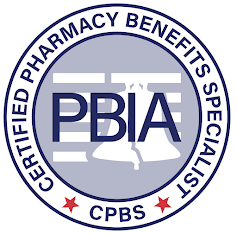Audit of the American Postal Worker’s Union Health Plan’s Pharmacy Operations and other notes from around the interweb:
- Audit of the American Postal Worker’s Union Health Plan’s Pharmacy Operations. “We found that the PBM overcharged the Carrier and the FEHBP $44,882,688 (including lost investment income) by not passing through all discounts and credit related to prescription drug pricing that were required under the PBM Transparency Standards found in the Carrier’s contract with the OPM. Specifically, our audit identified the following six findings that require corrective action. The findings occurred across all years of the auto scope unless otherwise noted.”
- Why Are Cash Prices Lower Than Health Insurance Negotiated Prices? Growing evidence demonstrates a counterintuitive phenomenon in healthcare: the cash price is often cheaper than insurance prices for the same service or product. Cash prices are unilaterally determined by a provider, while insurance prices are bilaterally negotiated between a provider and an insurance company. Don’t insurance companies presumably possess more bargaining power than individual patients? Our study found that among common shoppable services—such as lab tests, imaging, and joint replacements—half of U.S. hospitals set cash prices lower than their median insurance negotiated prices. Cash price being cheaper than insurance prices has also been documented for prescription drugs.
- Fiduciary Duty Update: PBM Audit is Now Mandatory Protocol. The revelation that a drug costing over $10,000 in the market could be sourced for $28.40 has sent shockwaves through the industry, illustrating a glaring oversight in PBM management. Auditing your PBM is not merely a best practice; it is a critical safeguard against financial inefficiency and legal liabilities. Audits reveal discrepancies in billing, conflicts of interest, and non-compliance with contract terms — issues that, if unaddressed, could lead to breach of fiduciary claims.
- How GoodRx Helped Steal $7 From My Pharmacy. GoodRx, primarily known as a platform for obtaining prescription coupons and tracking drug prices, interacts with Pharmacy Benefits Managers (PBMs) in a way that’s distinct from traditional PBM operations. In essence, GoodRx leverages the existing PBM infrastructure to provide discounted prices directly to consumers, often bypassing the more traditional insurance-based prescription purchasing pathway. For benefits consultants and employers, understanding this interaction is crucial in advising on healthcare strategies that maximize both cost efficiency and patient outcomes. Employers need to consider how tools like GoodRx fit into a broader benefits design, particularly in terms of how they affect out-of-pocket costs for employees and the overall usage of pharmacy benefits managed under traditional PBM contracts.
